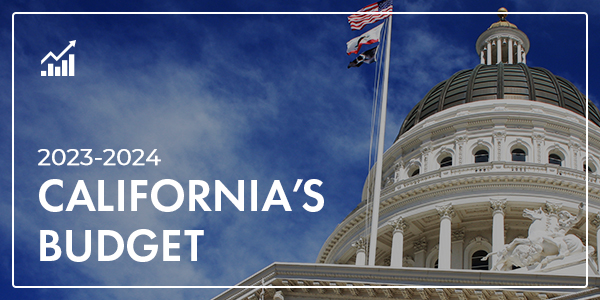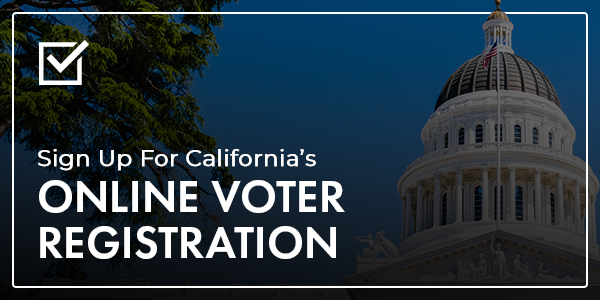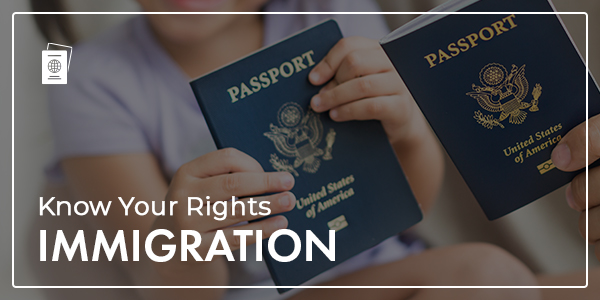Questions and Answers
1. As a landlord of a small building with 6 stores, I have not received full rent from any of my renters for the last few months. Now they are just starting to open they have to make up the late rents. I’m not sure that all 6 of my renters will be able to catch up. In the meantime, I also have to make the mortgage payments. So in six months, either I will be in foreclosure and or I have to evict my tenants. Is there something else I can do now to stop this from happening?
Director Nicchitta: The landlord should consider the Dispute Resolution program the DCBA offers. Have a dialogue with your tenant and try to establish a repayment plan but if you need help the mediators of this program is available to assist. DCBA also offers a Foreclosure Prevention service for landlords with 15 or fewer tenants available that can help negotiate with their lender. Go to https://lacountyhelpcenter.org/ to access all of the programs. Also should consider federal disaster relief programs like EIDL offered by SBA.
2. I paid my insurance and understood it included business interruption coverage, why isn’t loss of business due to the COVID 19 pandemic covered?
Commissioner Ricardo Lara: The first thing to know is that not all policies are the same. We would need to look at the specific policy to better understand what coverages and exclusions you have. If you have Business Interruption coverage, but your insurance company is telling you that these losses are not covered due to exclusions in your policy, we recommend that you file a formal claim with your insurance company and start creating that paper trail.
Insurance companies are legally required to fairly investigate your claim and formally respond back to you with their coverage decision and the reason for any denials they may make.
Deputy Commissioner Tony Cignarale: While it is more complicated than this, many commercial policies have exclusions for loss due to contamination by virus and similar perils.
Many policies also require that your loss be caused by direct physical damage or loss to the insured property that results from a cause covered by the policy. These conditions and exclusions do create hurdles to obtaining coverage.
However, as Commissioner Lara mentioned we would need to see the entire policy as well as the circumstances applicable to your loss event to know what conditions or exclusion may or may not exist for a particular business.
If a business has not filed a formal claim, it should do so immediately. If the business has filed a formal claim and that claim has been denied, we recommend you to file a “Request for Assistance” with CDI at 1 (800) 927-4357 or through our website www.insurance.ca.gov.
We will look at the facts of the claim, the policy provisions, and contact the insurance company if we determine there is an issue with their determination.
While it is true that many commercial policies have provisions that may exclude coverage for business interruption under the circumstances, the CDI will review the claim to ensure that your insurer is properly investigating your claim and following all laws and the provisions in your contract.
3. I would like to know how the SBA loans will need to be paid back (not the initial $1000/employee payment but the actual loans). The terms on the SBA site (30 Years at an Interest Rate of 3.75%). Is different than what I see when I read about it online (in articles sourcing the SBA). I would like to know specifically which expenses (if any) will be forgiven.
Deputy District Director Raju: Terms for 30 years at 3.75% is referencing EIDL loan program. 2.75% for non-profits. These are loans. Loans for businesses to meet financial obligations and operating costs that could have been met had the pandemic not happened.
PPP with loan amount up to $10 million with 1% rate can be forgivable. If they use 75% of the loan for payroll and 25% for rent, mortgage, and utilities. Can be deferred up to 6 months.
EIDL loans are not forgivable. Only the advance of up to $10,000, average of $1,000 per employee can be forgivable. Up to 30 years to repay, can be deferred up to 12 months.
Leverage one of the lenders, resource partners or our office for more assistance. Email us at lado@sba.gov
4. With the current unrest throughout neighboring communities, business want to know if damage to their business property and inventory by riots and looting is covered by insurance?
Commissioner Lara: Standard commercial policies typically include coverage for physical loss or damage to the insured property resulting from looting, vandalism, or riots.
Whether a specific loss will be covered depends on the actual language in the policy and any coverage exclusions that may apply.
It is important to check your specific insurance policy for the following coverages:
• Vandalism and Malicious Mischief: These both involve willful destruction of property and are closely related.
• Riot and Civil Commotion: These both involve a revolt by a group of people in a public place – a civil commotion is similar to a riot but involves a greater number of people. Insurance policies often list these together.
• Business Income Coverage: This covers your loss of income when you have to suspend operations, and typically is triggered by a direct physical loss from a covered peril in your policy, such as a fire.
• Civil Authority Coverage: Business income coverage will typically include civil authority coverage, which protects your loss of income if a civil authority prohibits access to your business, such as a local government order. Businesses that have this coverage and are forced to limit their hours or suspend operations during rioting, vandalism or civil commotion may be covered after an initial waiting period.
• Glass Coverage: Many commercial policies cover glass breakage. But we have seen some companies requiring separate glass coverage, that is added to the policy by endorsement for an additional premium.
I also want to mention two other coverages.
• Auto coverage: Damage to a personal vehicle because of riot or civil commotion is covered under the comprehensive portion of your policy.
• Homeowners and renters’ coverage: A standard homeowners and renters’ policy will cover all the perils I mentioned – riots, civil commotion, vandalism or malicious mischief. If you have a California FAIR Plan policy – the insurer of last resort in California – these coverages are optional, so you need to verify that you purchased them.
If you are wondering whether to file a claim, I urge you to contact the agent or company who sold you the policy. You should face no consequences for inquiring about a claim – such as losing a claims free discount. You need to make the decision that is best for you.
If you are not satisfied with the answers you get or have other questions, please contact us at 1 (800) 927-4357 or through our website at: www.insurance.ca.gov.
5. We’ve heard conflicting information regarding the EIDL $10,000 advance. Is it or is it not forgivable?
Deputy District Director Raju: Yes, the advance of approximately $1,000 per employee up to $10,000 of the EIDL program is forgivable. Any advance portion of the EIDL loan is forgivable and you will not have to pay that back. Even if you are offered the loan and decide not to accept the EIDL loan, you will not have to pay back the advance you have received.
6. My business is not considered essential, but I am continuing to employ workers and pay my workers’ compensation insurance. Can worker's comp insurance companies exclude COVID-19 from their coverage, whether or not they are considered essential businesses?
Commissioner Lara: Workers compensation insurers cannot exclude COVID-19 from their coverage. All workers affected by COVID-19 on the job are eligible for workers’ compensation benefits – whether or not they are considered essential services. This includes workers engaged in front-line occupations such as health care, emergency services, food production, sales, and delivery, among others.
Workers’ compensation also applies to undocumented workers. In 2015, when I was in the California State Senate, I authored SB 623, which was signed by the Governor, that expanded protections for undocumented workers in the event they are injured on the job, even if their employer does not carry workers’ compensation insurance as required by law.
I issued a notice to insurance companies on April 6 to remind insurance companies about these existing legal protections for undocumented workers.
Governor Gavin Newsom signed an executive order creating a presumption that a worker contracted COVID-19 while on the job if the worker is diagnosed with COVID-19 or tests positive within 14 days of performing a labor or service at a place of work.
That order applies to all workers, whether or not they are deemed “essential.”
The Governor's action will help people recover and get back to work, and give peace of mind to those who are keeping our economy going as we take steps to reopen the state.
But I have to say for our business owners, this is a rebuttable presumption, meaning that employers will have a chance to prove that the illness is not work-related.
The presumption will stay in place for 60 days from the date of the executive order.
Alec Stone, Legal: If you are injured or become sick on the job, immediately report the injury to your employer. Your employer will notify the insurance carrier to ensure you are properly covered for your illness or injury.
If you have questions regarding the identity of your employer’s insurance carrier, call the Workers’ Compensation Insurance Rating Bureau at 1-888-229-2472 or visit their website at www.caworkcompcoverage.com.
7. I own a small ice cream shop. I have been able to defer my rent but that is ending and I now have to make up the rent. I can’t see how with the new in-store restrictions, I’m going to sell enough ice cream to catch up. What is going to happen in six months when I haven’t been able to make all the late rent payments?
Director Nicchitta: Assuming County moratorium rules apply here and you have 9 or fewer employees as of March 4th, you will have 12 months to repay the back rent. No schedule of how much per month to repay. If you need to access capital or grant opportunities or other financial resources, please call us at (833) 238-4450. Open a dialogue with your landlord sooner than later. If you need help with Mediation, contact our disaster help center at https://lacountyhelpcenter.org/ to help come up with a common sense repayment plan that works for both you and the landlord. Evicting small business tenants will not be a good financial strategy for most landlords at this time so there is room to negotiate.
8. You issued a bulletin requiring insurance companies to refund premiums -- will that be for my total monthly payment and when will I get that?
Commissioner Lara: I ordered premium refunds because for many people the risk of accident or loss is much lower due to the statewide stay-at-home order. We are seeing:
• Fewer accidents or injuries on the road
• Falling business payroll and receipts
• Reductions in liability exposure due to the temporary closure of many businesses
Premium reductions and refunds should reflect that.
The risk has not gone away completely – but my Department will be watching to make sure that the amount insurance companies are returning is adequate, and they are not short-changing you.
Alec Stone, Legal: The amount you get back will vary by company and policy.
In many cases the credit, reduction or refund will be a percentage of your premiums for March, April and May as these stay at home rules continue.
This will not be a 100% refund of your premium; the reductions will be tied to the change in risk during the months Californians are subject to “stay at home” orders.
We have already seen a number of insurance companies announce premium refunds, reductions and credits.
Commissioner Lara’s bulletin directed all insurers to make an initial premium refund to all adversely impacted California policyholders as soon as possible, but no later than 120 days from the date of the bulletin (which will be August 11, 2020). This directive applies to the following lines of insurance:
• Private passenger automobile insurance
• Commercial automobile insurance
• Workers’ compensation insurance
• Commercial multi-peril insurance
• Commercial liability insurance
• Medical malpractice insurance
• Any other line of coverage where the measures of risk have become substantially overstated as a result of the pandemic.
Commissioner Lara’s bulletin was one of the few among all states to include premium refunds for commercial lines, rather than just personal auto.
Recognizing the unique nature of each insurer’s policyholder base and insurance coverage offered, we directed each insurance company to propose the best way to immediately return premium to policyholders. We also directed each insurer to report back to the Department how each insurer will fulfill this directive within 60 days (or by June 12, 2020).
Persons who have not received premium relief in spite of a reduction in the covered risks under a policy are strongly encouraged to contact their insurance company. If you are not satisfied with the answers you get or have other questions, please contact us at 1 (800) 927-4357 or through our website at: www.insurance.ca.gov. There are strong indicators that the risk of accidents has fallen sharply due to Governor Newsom’s stay at home orders.
Commissioner Lara has also requested an extended grace period to pay your premium. If you are having trouble paying your premium, contact your insurance company and inquire about the Commissioner’s grace period notice.
9. How can micro sole proprietor businesses, such as barbers, tour guides, nail salons, gardeners, etc. without any employees get federal financial assistance?
Deputy District Director Raju: Sole proprietors, whether you have employees or not are small businesses. Apply! You are eligible to apply for both the PPP and EIDL programs. Reach out to our office to fully understand and fully leverage all of the resources available to you. Email us at lado@sba.gov.
PPP deadline is June 30, 2020
10. Some have said that health insurance rates may go up by up to 40% in 2021. Can you speak on these claims?
Commissioner Lara: The data about a 40% increase in health insurance rates came from a report by Covered California – our state’s insurance exchange.
But COVID-19 is causing a lot of uncertainty -- we don’t yet know what is going to happen for employers. Actuaries for health insurers are currently developing their assumptions regarding impact for their 2021 rates, and will likely price their products to reflect this uncertainty.
One thing is that we do not anticipate unexpected windfalls in terms of reduced claims, over the long term, as a result of COVID-19.
Yes -- there has been a substantial decrease in necessary, but elective procedures (such as heart surgery and cancer surgery) during the pandemic, in part in response to the need to focus hospital resources on developing capacity for the treatment of COVID-19 patients. As a consequence, hospitals are experiencing a substantial decrease in revenue.
Many of these procedures may be deferred to a later time – so claims for these procedures may come in a wave later. The relative percentage of delayed vs. cancelled procedures is yet another COVID-19 uncertainty.
Also, because of delay in necessary, but elective, procedures, morbidity is expected to increase. This is something I have seen with our undocumented and vulnerable communities – where putting off care leads to tragic results.
Patients who do eventually present for care will be sicker with, for example, more advanced cancer. So, this will probably result in greater, more expensive claims in the future.
Because of job losses related to the COVID-19 situation, we expect to see some shifts from employer-based coverage to COBRA or the individual market.
I supported Covered California’s declaration of a special enrollment period to facilitate the ability of Californians who have lost their job to enroll in individual coverage through Covered California. More than 84,000 Californians have enrolled through Covered California since the exchange announced its COVID-19 special enrollment period.
Depending on their income, they may receive substantial subsidies to make health insurance affordable during this difficult time.
It’s also important for Californians to remember that, if their income is substantially reduced, they may qualify for low-cost or no-cost Medi-Cal coverage. Their eligibility for such coverage will be determined during the Covered California online enrollment process.
My Department has taken some actions to address health costs for consumers:
• One of my first actions in response to the crisis was to eliminate cost-sharing for COVID-19 testing on March 5 -- Governor Gavin Newsom and I directed insurance companies to eliminate co-pays, deductibles and other costs related to screening and testing for COVID-19. As we expand testing and get people back to work that will be increasingly important.
• On March 30, I directed health insurance companies to increase telehealth access for consumers. Health insurance companies must continue to provide access to medically necessary care and California policyholders should be able to access medically necessary health care without physically visiting their provider in person, when clinically appropriate.
• I think telehealth is here to stay – and this is going to be a good thing for employers and workers alike. And telehealth can keep our medical offices working while reducing risks to front-line workers and to patients. There are strong indicators that the risk of accidents has fallen sharply due to Governor Newsom’s stay at home orders.





